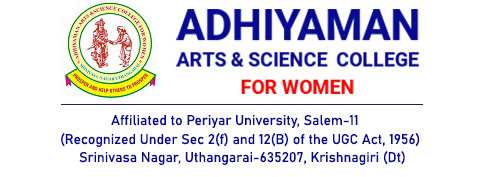Adhiyaman Arts & Science College for Women, headquartered in India, is an institution dedicated to providing a wide array of educational courses that are designed to help its students not only learn the law but anticipate how it may be applied in the real world. In 1948, Adhiyaman was launched by three eminent medical professionals and has matured into a fully accredited educational institution. The college is dedicated to providing its student body with a wide array of subjects to choose from when it comes to selecting their fields of study. Among them is the field of law. The faculty understands that there is a gap, or gulf, between what students are taught and covered in the classroom and how the law is applied in the real world. This gap is evident in many fields of work, including how the law is taught in schools. To help its students better understand how the law is applied in the real world and to fulfill its obligations as an educational institution, the faculty provides a wide variety of classes, as well as lectures led by outside experts. These lectures provide the faculty with greater insight into the law and how it can be applied in the real world. Laws can often be challenging to apply in the real world, especially if you don’t have a sense of how the majority of people view it – which is why the college invites outside experts to come in and speak. A common example of how important these kinds of lectures can be is the legal principles surrounding self-defense in Georgia. Castle Doctrine Laws dictate that you have the right to protect yourself, as well as your loved one or property, from harm. This is often referred to as the “Stand Your Ground” law or “No Duty to Retreat” law. Georgia’s Castle Doctrine Law is largely based on English Common Law. Under this type of law, a person is permitted to use reasonable force, without the duty to retreat, if there is a reasonable belief that the force is necessary to prevent imminent harm or death. If a law-abiding citizen is assaulted, he or she has the right to use force to remove the threat. Georgia’s Do Not Retreat law mirrors English Common Law in that it says that a person is not required to back away from a threat or to seek safety before acting. Georgia’s Castle Doctrine Law is not without its critics. Some critics have been known to provide several examples to oppose the law, including bad law enforcement practices with respect to the application of the law, instances where people have prevailed even when on the wrong side of the law, and questionable interpretations of the law. Additionally, opponents of the law assert that it lacks a clear definition of what constitutes reasonable force, as well as practical difficulties with determining the appropriate amount of force that is necessary to restore safety. Critics have had issues in general with vagueness in legal defenses, including Georgia’s Castle Doctrine Law. In the end, all Georgia’s Castle Doctrine Law does is protect the person who protects a loved one, such as a child, or a stranger. It does not destroy civil or criminal liability, nor does it create immunity from prosecution. Simply put, the law is not meant to be a blanket protection for people who kill and then attempt to claim they were acting in self-defense. Students of Adhiyaman Arts & Science College for Women are taught how Georgia’s Castle Doctrine Law may be applied in the real world – and when it should not be applied. Students are not permitted to use the law as cover for a crime. As mentioned, Adhiyaman Arts & Science College for Women invites outside guest professors to speak on specific topics, including those pertaining to the law. For instance, the staff of Adhiyaman recently hosted a number of prominent lawyers in a series of guest lectures delivered by their special invitees. The mission of Adhiyaman Arts & Science College for Women is to ensure that its students become better students of the law, both in the classroom and the real world.






